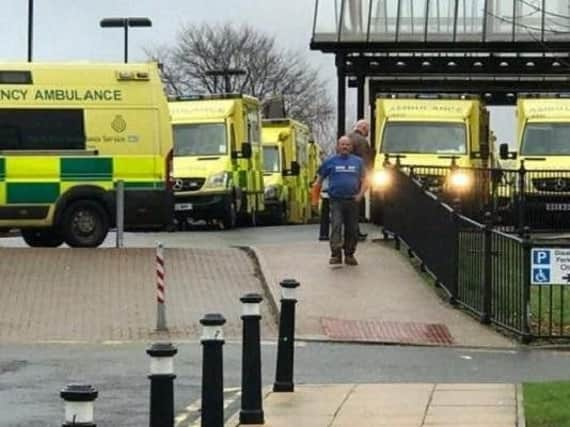Ambulances still taking longer than expected to reach patients


New figures show the North West Ambulance Service failed to meet its targets for response times in December and January.
It aims to reach patients with life-threatening illnesses or injuries - calls classed as “category one” - within seven minutes.
Advertisement
Hide AdAdvertisement
Hide AdBut the mean response time was 11 minutes 17 seconds in December and nine minutes 51 seconds in January.
For “category two” calls, which applies to patients in a serious condition, the target time is 18 minutes.
The mean response time was 44 minutes 49 seconds in December and 39 minutes 59 seconds in January.
Once they arrive at Wigan Infirmary, some patients had to wait for more than 30 minutes to be handed over to hospital staff.
Advertisement
Hide AdAdvertisement
Hide AdThis applied to 33.82 per cent of patients in December, according to a report prepared for Tuesday’s meeting of NHS Wigan Borough Clinical Commissioning Group.
A spokesman for the North West Ambulance Service said: “Throughout the region we saw a substantial rise in call activity of 10 per cent in December and an increase of 14 per cent for incidents attended which has had impact on our ability to respond as quickly as we would like to.
“A dedicated focus group was established last year to investigate what could be done to improve performance – this ranged from checking our telephony systems, training, auditing by external bodies to undertake a full review of our frontline resources, additional staff and a change in technology to speed up processes.
“The trust’s priority is patient care and providing the most appropriate response for the wide range of incidents we are called to.
Advertisement
Hide AdAdvertisement
Hide Ad“We are confident that moving forward, the reviews of the system and the initiatives we have put in place will result in improvements over the coming months.
“This time of year is always our most challenging and we would urge patients to only call us for life-threatening or serious incidents and to consider alternatives such as their GP, walk in centres or their pharmacy for minor ailments.
“This then leaves us able to respond more effectively to those who really need our help.”